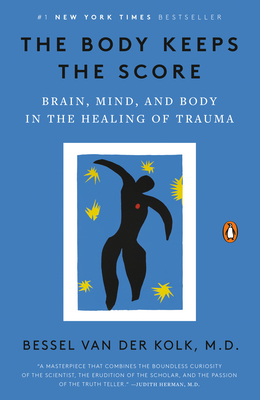
Clinical Applications of the Polyvagal Theory: The Emergence of Polyvagal-Informed Therapies (Norton Series on Interpersonal Neurobiology)
Description
Innovative clinicians share their experiences integrating Polyvagal Theory into their treatment models.
Clinicians who have dedicated their work to bringing the benefits of the Polyvagal Theory to a range of clients have come together to present Polyvagal Theory in a creative and personal way.
Chapters on a range of topics from compassionate medical care to optimized therapeutic relationships to clinician's experiences as parents extract from the theory the powerful influence and importance of cases and feelings of safety in the clinical setting.
Additionally, there are chapters which:
- elaborate on the principle of safety in clinical practice with children with abuse histories
- explain the restorative consequences of movement, rhythm, and dance in promoting social connectedness and resilience in trauma survivors
- explains how Polyvagal Theory can be used to understand the neurophysiological processes in various therapies
- discuss dissociative processes and treatments designed to experience bodily feelings of safety and trust
- examine fear of flying and how using positive memories as an active "bottom up" neuroceptive process may effectively down-regulate defense
- shed light on the poorly understood experience of grief
Through the insights of innovative and benevolent clinicians, whose treatment models are Polyvagal informed, this book provides an accessible way for clinicians to embrace this groundbreaking theory in their own work.
Praise for Clinical Applications of the Polyvagal Theory: The Emergence of Polyvagal-Informed Therapies (Norton Series on Interpersonal Neurobiology)
[E]ssential knowledge for everyone who works as a therapist. . . . The contributors to this book offer a wide range of the applications for polyvagal theory. . . . I highly recommend this book for professionals. . . . [F]or anyone who is interested in the underlying physiology on how we come to view the world and how as we do.
— Psych Central
This collection of papers is an extraordinarily interesting exploration of the theory in practice. The plethora of contributions present case studies that are as touching as they are insightful.
— Sussex Counselling and Psychotherapy News
Stephen Porges has not only made one of the most profound
and illuminating contributions to our understanding of the nervous system in
the last 50 years, but he has made one of the most useful ones, cracking the
facial code, deepening Darwin’s work—an extraordinary feat—while teaching us to
understand a patient’s nervous system’s state, sometimes when even they
themselves cannot. And now, in this wonderful, illuminating book, co-edited
with Deb Dana and filled with contributions from some of the leading lights
from across the healing professions, we see how useful a variety of clinicians
find Porges’ breakthroughs. This book teaches so many practical applications
and shows how creative clinicians can use this work to settle even the most
distressed human beings and help them transition into the state in which they
are most likely to heal.
— Norman Doidge, MD, author, The Brain That Changes Itself, and The Brain’s Way of Healing
The autonomic nervous system, oft neglected and until
recently dismissed as primitive, takes center stage as the focus of exploration
in this significant work. The most important names in our understanding of
interpersonal trauma are represented here as they explain Porges’ Polyvagal
Theory and its influence on understanding behavior and psychological processes.
Safety, reciprocity, and synchronicity underpin the biology of social
engagement to create the substrate for healing trauma. All this is elegantly
explained in this book.
— Drew Pinsky MD, Internist, New York Times bestselling author, host The Dr. Drew Podcast













